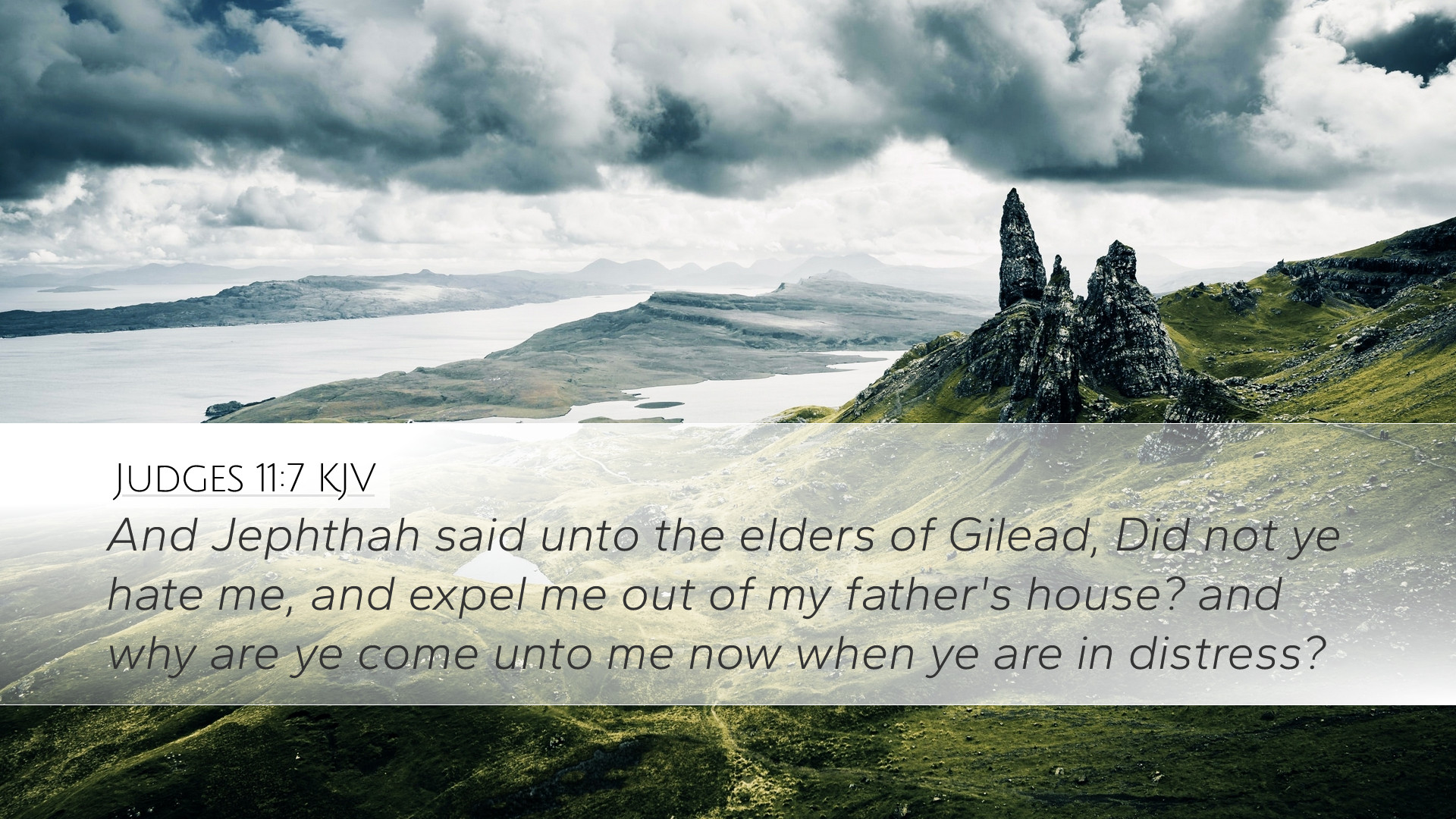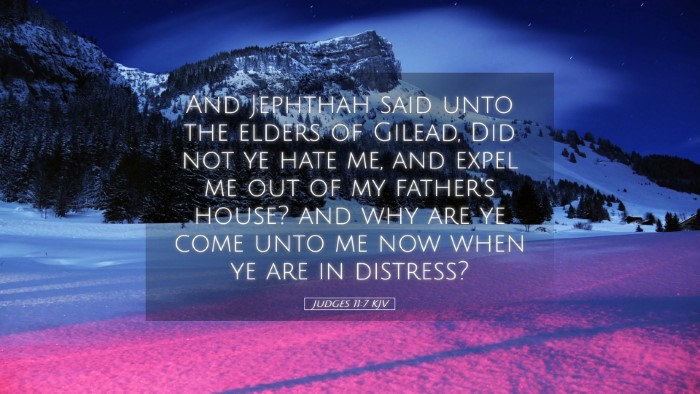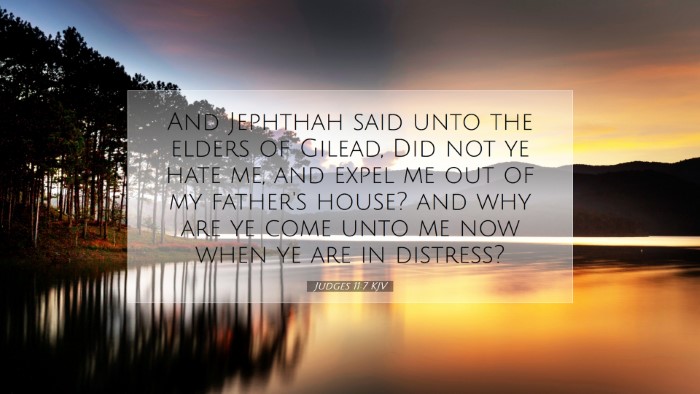Commentary on Judges 11:7
Judges 11:7 narrates a pivotal moment in the life of Jephthah, highlighting his complex relationship with his family and the socio-political struggles faced by Israel during this period. This commentary synthesizes various insights from public domain commentaries such as those of Matthew Henry, Albert Barnes, and Adam Clarke.
Text of Judges 11:7
Judges 11:7 (KJV): "And Jephthah said unto the elders of Gilead, Did not ye hate me, and expel me out of my father’s house? and why are ye come unto me now when ye are in distress?"
Contextual Overview
The context of Judges 11 is crucial. Israel is facing oppression from the Ammonites, and the elders of Gilead, in desperation, turn to Jephthah whom they had previously ostracized. This highlights not only the political landscape of the time but also the familial and societal dynamics at play.
The Nature of Jephthah’s Response
Jephthah's response to the elders of Gilead is marked by a profound sense of awareness regarding his past. His rhetorical questions imply a rich emotional history and reflect a deep-seated hurt:
- Rejection and Alienation: Jephthah acknowledges the disdain the elders held for him, showcasing the theme of social rejection. This not only emphasizes his personal pain but also serves as an allegory for the broader experience of the Israelites who feel alienated due to oppression.
- Rhetorical Question as Critique: His use of rhetorical questioning serves as a critique of the current situation; he challenges the sincerity of their appeal, suggesting that their prior actions of dismissing him were shortsighted and ill-considered.
Theological Reflections
From a theological perspective, Jephthah’s reluctant acceptance of leadership is striking. His acknowledgment of past grievances presents a theme of forgiveness and reconciliation:
- Forgiveness: Past grievances are laid bare, inviting reflection on the necessity of reconciling conflicts. Jephthah's situation reminds leaders and communities of the imperative to seek forgiveness and restoration.
- God’s Sovereignty: Despite his circumstances, Jephthah remains within the scope of God’s providence. His appointment as a leader of Israel points to God’s ability to use broken vessels for His purposes.
Insights from Public Domain Commentaries
Matthew Henry’s Commentary
Matthew Henry provides a poignant insight into Jephthah's situation, noting that the elder’s appeal to him was driven by necessity rather than genuine affection. Henry emphasizes the themes of divine appointment despite human prejudice, asserting that God often raises leaders from unexpected backgrounds. He also draws attention to the grace God extends even to those who might be considered outcasts.
Albert Barnes’s Notes
Albert Barnes elaborates on the socio-political dynamics at play, indicating that Jephthah’s leadership was not merely a product of his battlefield prowess, but also a response to the intense need of Israel amidst their adversaries. Barnes expresses that the elders’ recognition of their own failure to appreciate Jephthah earlier serves as a reminder of human frailty and the complexities of leadership.
Adam Clarke’s Commentary
Adam Clarke provides a historical backdrop to Jephthah's situation, detailing the social customs that lead to his expulsion. Clarke’s exposition on Jephthah's character underlines his strength and shortcomings, illustrating that despite the challenges he faced, he was still a man of valor and faith longing for recognition and purpose.
Application for Pastors and Theologians
For pastors, students, and theologians, Judges 11:7 offers critical lessons:
- Understanding Past Pain: Leaders must acknowledge the pain of their congregants and the community’s historical context. This understanding can lead to restorative conversations.
- God's Use of Flawed Individuals: The narrative encourages the church to embrace diverse leaders, recognizing that God can call anyone, irrespective of their past, to fulfill His divine mission.
- Encouragement in Distress: Just as Jephthah was called in a time of need, so too should ministers remind their congregations that they can be a source of strength and hope in difficult times.
Conclusion
Judges 11:7 serves as a profound reminder of God’s grace in seemingly impossible situations, and the capacity for human relationships to heal and transform. It invites ongoing reflection on the themes of rejection, forgiveness, and divine providence, encouraging leaders to embrace those they may have overlooked in the past. As we ponder this scripture, may it inspire a deeper commitment to pastoral care and community reconciliation.


